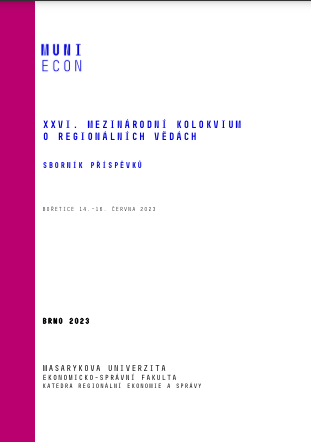USING HOT SPOT ANALYSIS TO IDENTIFY SPATIAL CLUSTERS OF STABILITY OF LOCAL POLITICAL ELITES
USING HOT SPOT ANALYSIS TO IDENTIFY SPATIAL CLUSTERS OF STABILITY OF LOCAL POLITICAL ELITES
Author(s): Jan Prener
Subject(s): Politics, Governance, Government/Political systems, Methodology and research technology
Published by: Masarykova univerzita nakladatelství
Keywords: local political elites; Czechia; elections; hot spot analysis; territorial differentiation;
Summary/Abstract: The transformational processes after 1989 brought several qualitative changes of a fundamental nature. Along with these facts, there was also a substantial transformation of the electoral behaviour of inhabitants and its discontinuity across territories. Given the above, it is evident that the electoral behaviour of the Czech population selectively affects the stability of local political elites (municipal representatives). Therefore, the presented text aims to identify territorial differentiations of the stability of representatives in Czechia through hot spot analysis and further understand and clarify the factors, processes, or mechanisms that ultimately condition the mentioned (in)stability. The results of stability indicate several variables (mainly social, economic, or demographic) that (co)determine significant territorial differentiation and, simultaneously, the ambivalence of the investigated stability of local political elites in different types of territories. High stability is evident in the so-called inner peripheries, which have long exhibited unfavourable socioeconomic parameters. Conversely, instability of representatives can be found in border areas that have been resettled in many cases. In both cases, we can talk about problem areas that need to be given appropriate attention for the sake of further development.
Book: XXVI. mezinárodní kolokvium o regionálních vědách: Sborník příspěvků
- Page Range: 416-423
- Page Count: 8
- Publication Year: 2023
- Language: English
- Content File-PDF

